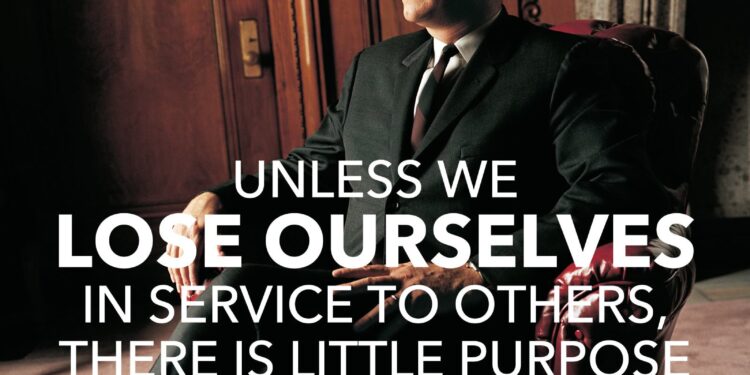EDITORIAL – What Erika Kirk said, what Jesus taught about forgiveness, and how her words align with Christian teaching — including some of the tensions and challenges in practice.
What Erika Kirk said
-
At her husband Charlie Kirk’s memorial in Glendale, Arizona, Erika Kirk said she forgives Tyler Robinson, the man accused of killing Charlie.
-
She referenced Christ’s words on the cross: “Father, forgive them, for they know not what they do.”
-
She said her forgiveness is because “it was what Christ did, and is what Charlie would do.”
-
She emphasized that “the answer to hate is not hate … love for our enemies and love for those who persecute us.”
-
She also said she does not want “that man’s blood on my ledger,” meaning she doesn’t want personal vengeance or hatred.
Jesus’ teaching on forgiveness: key points
From the Christian scriptures (especially the New Testament), here are central teachings of Jesus that relate closely:
-
Forgiveness of enemies.
-
In the Sermon on the Mount, Jesus teaches: “Love your enemies and pray for those who persecute you.” (Matthew 5:44)
-
Jesus’ example on the cross: “Father, forgive them, for they know not what they do.” Luke 23:34.
-
-
No retaliation / turning the other cheek.
-
“If anyone strikes you on the right cheek, turn to him the other also.” (Matthew 5:39)
-
-
Forgiving others as we ourselves are forgiven.
-
Lord’s Prayer: “Forgive us our debts, as we also have forgiven our debtors.” (Matthew 6:12)
-
Parable of the Unforgiving Servant (Matthew 18:21-35) — forgiving others is expected as part of Christian life.
-
-
Love, mercy, compassion over vengeance.
-
There is a theme throughout Jesus’ teaching that love should overcome hate, that mercy and compassion are Godly virtues.
-
-
Justice and accountability still matter.
-
Forgiveness doesn’t necessarily negate justice. Jesus doesn’t teach that evil acts should be ignored, but that retaliation or personal vengeance should be avoided.
-
How Erika Kirk’s action follows Jesus’ teaching
Putting the two together, here’s how Erika’s forgiveness aligns with Christian teachings:
-
Emulating Christ’s example. She explicitly references Jesus’ forgiveness (“Father, forgive them …”) as a model. That’s in line with Christians seeing Jesus’ actions as the highest standard.
-
Choosing love over hate / resisting vengeance. Her refusal to hold personal vengeance or let hatred dwell in her (“that man’s blood on my ledger”) reflects Jesus’ teachings about not letting hate consume one.
-
Forgiveness even in great pain. She is doing this despite enormous personal grief. Christian teaching often holds that forgiveness is hardest but most meaningful in moments of suffering.
-
Forgiving without excusing. While she forgives, she does not deny that wrong was done, that there is legal/accountable consequences. She isn’t saying “it wasn’t wrong” or “it’s okay” in a moral sense — she’s choosing grace over hate. This is consistent: forgiveness in Christianity is often viewed as independent of whether justice or punishment still takes place.
Nuances, challenges, and possible tensions
To be fair, especially in Christian theology and life, there are complexities:
-
Forgiveness is not minimalizing sin or wrongdoing. Some worry that forgiveness is misunderstood as saying the act was fine or as if nothing bad happened. But Jesus’ teaching doesn’t erase wrong; it changes how one responds internally. Erika seems aware of that: she forgives, but doesn’t reject that the act was grievous, or that there’s a role for the law.
-
Distinguishing forgiveness from justice. Christian teaching allows for forgiveness and for society to hold wrongdoers accountable. Pushing for or allowing legal consequence doesn’t contradict the call to forgive. If one forgives but also supports justice, that can still be within Christian teaching.
-
The cost of forgiveness. Forgiveness can be emotionally, psychologically, even socially costly, especially when the harm is extreme. Some may question whether such public forgiveness is possible or whether it could feel like giving in. But Christian teaching doesn’t shy away from sacrifice. Jesus’ teachings often call for costly grace.
-
Authenticity and internal reconciliation. Forgiveness is more than words. Christian teaching tends to see real forgiveness as involving repentance, change, ongoing transformation (for both forgiver and forgiven). One can forgive someone, even when the person doesn’t change. It’s a relational and spiritual decision more than just a statement.
Erika Kirk’s choice to forgive follows quite closely the teachings of Jesus Christ:
-
She names Christ’s example,
-
She forgives even under intense suffering,
-
She emphasizes love over hate, enemies included,
-
She resists personal vengeance but does not deny justice.
This is very much in keeping with many Christian understandings of forgiveness: it is an act of grace, love, and sacrifice, rooted in Christ’s life and words.









